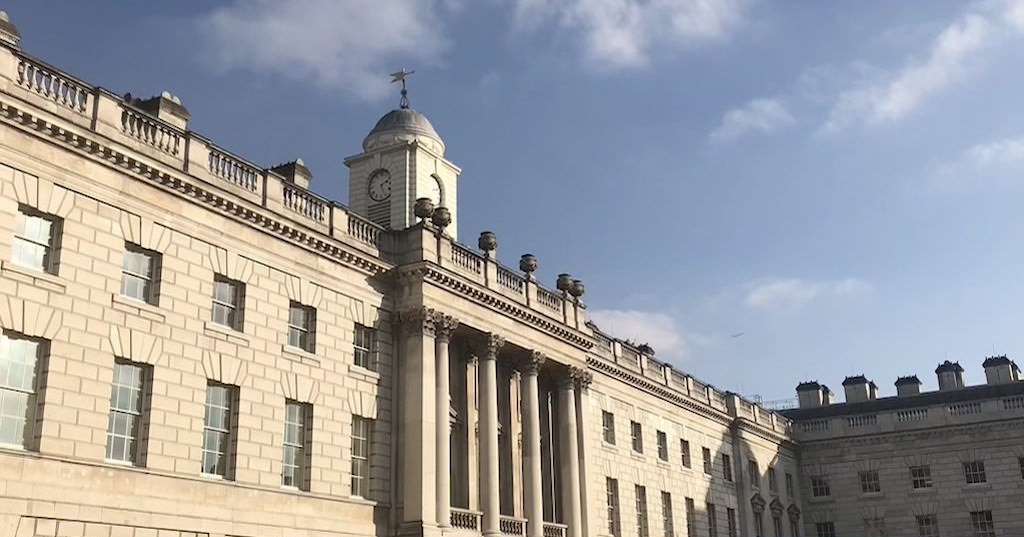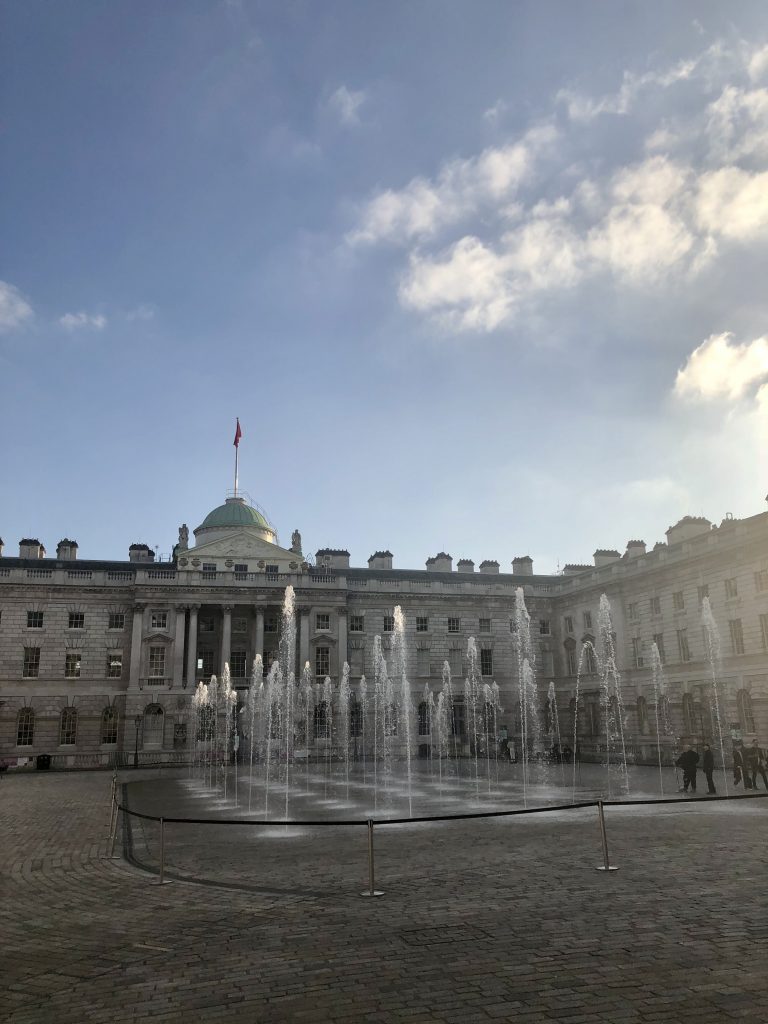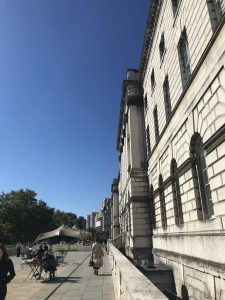Stranded Series: Sotiris Polyzopoulos
Posted in 2020-2029, 21st Century, people, Stories, Strandlines, workers and tagged with central London, coronavirus, COVID, Life in lockdown, London, London lockdown, pandemic, strand, wfh, Work from home, working, zoom

The pandemic has undoubtedly emptied out London streets, all its buzzy hangout spots, workplaces and cultural epicentres. As essential workers continue to uphold the skeleton of the city and restaurants endeavour to provide the necessary sustenance (still managing to fit in a hello to the customers, often half in, half out, of alignment with the rules, masks below the nose, briefly touching hands with coins), many people have been forced to vacate their posts.
The Strand, once so lively and packed with queues during lunchtime, is now quiet and abandoned. But its people, daily commuters and office workers, who had to restore to working from behind their laptops at home, feel its abandon too. Therefore, to bring the Strand back to people, or perhaps people back to the Strand, I decided to speak to some of these persons via – surprise ! – a Zoom call. As a result, a mini project called ‘Stranded Series’ was born. Here is the first instalment.
Sotiris Polyzopoulos works as Executive Assistant to Vice President & Vice Principal (London) of King’s College London. He had been commuting to the Strand for over six years. However, his job being highly administrative and dependant more on technology than a specific location, his home now serves as the office. The remote work plan has been operating since mid-March, tying him to his house for both work and leisure as one of the ‘lucky ones’ who have not been furloughed.
As many of his fellow young professionals, he is not normally used to spending a lot of time at home. Sotiris explains, ‘I usually stay around the [Strand] neighbourhood after work and do things there as there are many places to go for the evening, and I only return to the house later’. This routine has obviously been turned around completely. Thankfully, living with friends means he has not felt ‘completely alone.’

Somerset House, February 2020
The typical workday has changed more than just in not being able to go sit outside and have a coffee in the beautiful courtyard of Somerset House. Despite workload staying roughly the same, the return of previously furloughed staff has made things ‘a bit manic at moments’. He finds a supportive work team vital for dealing with such situations and is happy to be a part of one.
With lockdown 2.0 freshly introduced, there is no notion of when Sotiris will be able to return to the Strand or socialise. Deciding to keep local during his daily exercise, he does not wander into the area these days, frequenting the many green spaces near his house. He also recognises the general atmosphere of lockdown getting darker (in both the atmospheric and literal sense, with winter closing in, and uncertainty wearing on the nerves).
‘People used to be very motivated about Zoom drinks in the beginning, but it has all kind of died down now and I do not think it is coming back as a trend,’ Sotiris reflects. Surely, the initial enthusiasm for retaining social contact via virtual means has been vanishing in parallel with the rising amount of screen time we are required to put in as a substitute for work or university meetings. Technology, formerly an escapist advantage, has now become a full-time occupation, hence chit-chats through a shiny monitor do not prove such an appealing pastime anymore. To all Strandlines readers – I hope you remembered to turn green light off!
Speaking of turning off – how does Sotiris feel about London hitting snooze for eight months now? As an all-time fan of the hustle and bustle, Sotiris cannot say he enjoys the calm that settled on the city: ‘I think I always was used to busy London – that’s what London is’.

Somerset House, February 2020
Of course, Sotiris admits we have to wait and hope these stressful times are soon over. And I could not agree more with that. For us students, attending university only in theory, fretting about the job market, losing even one formative year may feel overwhelming. For the older ones, losing the firm grasp of life already established, the loss might be a throwback to the uncertainties of youth. Yet while breeding doubts, the situation has taught us to appreciation for the mundane we often take for granted and think of those whose ‘normalcy’ resembles less of a sheltered reality. While daring imagine a definite end of the pandemic given the inevitable long-term repercussions would be foolish, let us hope as we are slowly allowed to greater proximity to one another, it will bring us closer than we had ever been before.


[…] December last year I shared a short account of Sotiris Polyzopoulos’s experience of pandemic working life. He reflected on how the rhythms of life have changed, from the busy office at the Strand to seeing […]